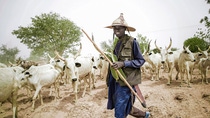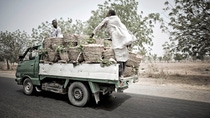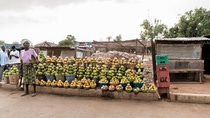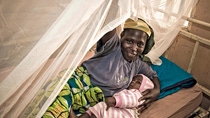Agriculture
Mosquitoes, Malaria and Agriculture
Every year, people across the globe mark World Malaria Day and World Mosquito Day. But for half of the world, every day is a day to keep up the fight against some of the world’s most serious diseases.
Alongside the significant impact on human health, malaria and other insect-borne diseases fuel poverty and hunger, especially in rural farming areas. It’s a terrible irony that farmers themselves represent around half of the world’s undernourished population. Smallholder farming communities often survive off marginal lands in areas where these diseases are endemic.

Saving lives and increasing harvests
Farming is the biggest job on earth and the impact of ill health on a farm business can be devastating. Mosquito-borne disease can strike smallholder communities at critical planting, weeding and harvesting times and in addition to the healthcare costs, it causes loss of labor, productivity and agricultural incomes, and slows the adoption of new agricultural practices.

People in endemic regions suffer with diseases like malaria up to five times a year – time lost tending crops during critical periods in the agricultural cycle means not just loss of income, but also the inability to feed themselves and their families.
Research shows that in some countries, malaria-afflicted smallholders lose up to 22 days work through the illness and harvest only 40 percent of their crops.
Recent studies report that measures to prevent malaria not only save lives, but also have a direct effect on agricultural productivity. A 2015 report in the Journal of Health Economics on farming communities in Zambia*, showed that subsidized distribution of insecticide treated mosquito nets (one of the most effective interventions to prevent malaria) increased the value of a typical harvest by 14.7%.
Take into account the fact that the economic burden of malaria reduces GDP in some countries by up to 1.3%, and it is easy to understand why the disease is one of the biggest barriers to development and prosperity in the developing world. Against this background, defeating malaria and other insect-borne diseases will not only result in healthier families, but will help defeat poverty, ensure a workforce better able to sustain itself, and a brighter future for entire communities.

How agricultural companies are helping to combat disease
The source of new anti-mosquito compounds for the public health sector has historically always been the agricultural market. These active compounds, that are used in impregnated bed nets and residual mosquito sprays, are essentially based on the same insecticides that are used in crop protection products.
The development of a new insecticide active ingredient takes 10 years or longer and costs up to $300 million. After this, the insecticide must then be formulated into a usable and effective public health product before can reach the market. The development of public health products requires high levels of R&D expertise to ensure the special characteristics needed; they must be safe to use in people’s homes, sprays have to adhere to tin or concrete walls, coatings must stay effective on polyester textiles even after 20 washes. This all adds many further years of testing, registration, and significant development costs.
The infrastructure and investment needed to develop mosquito control products for public health are therefore prohibitive for most companies. This is why leading R&D based, crop protection companies like BASF, with the resources, scientific expertise and innovation pipeline required to develop new insecticides and repurpose them effectively, are also the major suppliers to the public health market.
*Source: Health and Agricultural Productivity: Evidence from Zambia; Fink, G. and Masiye, F. Journal of Health Economics 42, 151-164, (2015).
BASF contributed to this Roll Back Malaria film about malaria and poverty.



